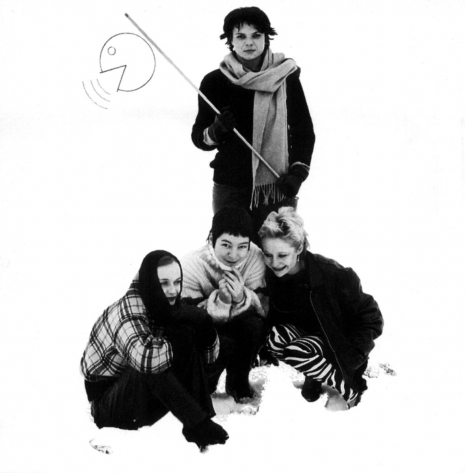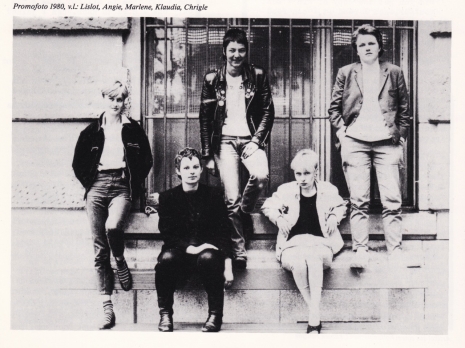
The all-female Swiss group Kleenex (later LiLiPUT) were one of the most playful acts of the post-punk era. The unit formed in Zurich in 1978, and released their first 7-inch via their own label later in the year. Lyrics were usually sung in English, though this wasn’t because they were trying to reach a wider audience; their native Swiss-German language just wasn’t lively enough for them. Kleenex/LiLiPUT incorporated bubblegum-like lyrics and phrasing into their songs, as well as vocal sounds like whistling and wordless, squeaky outbursts. But just because they had their whimsical side doesn’t mean they were never serious.
Early on, Kleenex had an influential supporter in BBC DJ John Peel, who played their debut 45 regularly on his radio program. This exposure lead to them signing with Rough Trade Records, and touring England with such acts as the Raincoats. In late 1979, there was a major shakeup, with their original singer leaving the group. Adding to their troubles, the band was threatened with a lawsuit by the company that owned the Kleenex name. So, with a new singer and an expanded lineup, they reemerged in 1980 as LiLiPUT.

Over the course of that first year of the decade, LiLiPUT released a single and contributed two tunes to the compilation, Swiss Wave The Album. One of the comp tracks is “Hitch-hike.” The song concerns a girl or young woman whose mode of transportation breaks down on the road, and since she doesn’t have the money for a train ride, has to hitch-hike (the practice was common at the time). Initially the singer is the narrator, but during the chorus the lyrics alternate between third and first person, as the protagonist is attacked and voices her fear. The “beep-beep” heard is the sound of a rape whistle—an inspired instrument choice, for sure. The use of the whistle not only signifies a call for help by the protagonist but illustrates the motives of her assailant to listeners of the song. The overall upbeat nature of the track, which ends with a forceful blow of the rape whistle, indicates she got away, though her fate is left ambiguous.
Girl was on road to drive away
She had no money to pay the train
Hitch-hike girls
Don’t touch me
Hitch-hike girls
I’m afraid
Hitch-hike girls
Let me be
The repetitive structure of “Hitch-hike” both creates tension and underscores the fact that what’s happening here is frightfully common. The rhythmic and recurring beeps of the rape whistle, in addition to its previously stated functions, act as a musical hook, heightening an already memorable song and making it unforgettable.
More after the jump…





